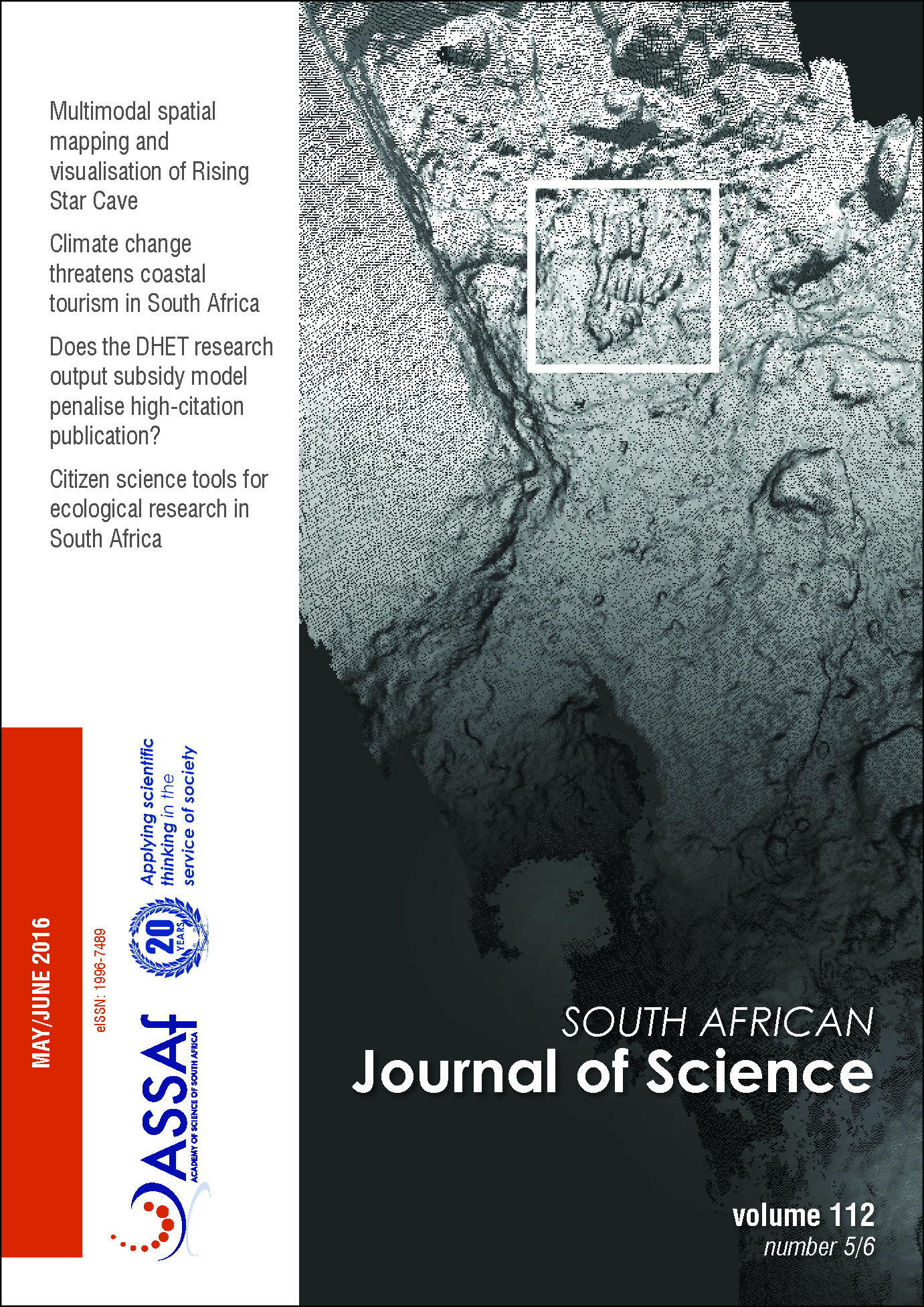Plagiarism and ghostwriting: The rise in academic misconduct
DOI:
https://doi.org/10.17159/sajs.2016/20150300Keywords:
academic integrity, contract cheating, essay mills, university cheatingAbstract
The aim of this paper is to review the current situation regarding plagiarism and ghostwriting, and to stimulate debate about how universities should respond to the rise in these forms of academic misconduct. The apparent upsurge in academic misconduct means that universities today face one of the greatest challenges to academic integrity they have had to deal with ever since the university system came into existence some 800 years ago. Plagiarism and ghostwriting are undermining the integrity of university degrees to an extent not seen before. Academia and fraud are not strangers. Universities have a long history of cheating of one sort or another, often associated with examinations, but also with research. In the past this cheating involved activities such as smuggling notes (commonly called ‘crib sheets’) into examinations, and consulting them even under the watchful eyes of invigilators. It also involved students obtaining sight of an examination paper in advance. The fraudulent creation of research results has also been an issue. However, in the 21st century, the opportunities for cheating have exploded. This has resulted in universities becoming more concerned about ensuring the integrity of their examination processes and the degrees they award. Our paper focuses on cheating in the writing of dissertations or theses required at undergraduate or postgraduate level, with an emphasis on plagiarism and ghostwriting. We do not propose a simple solution to these problems, as preventing or stopping cheating is not just a matter of catching the wrongdoers. Cheating is endogenous to the current university education system, and needs to be addressed in terms of not only prevention and detection but also how people who are found to engage in such misconduct are treated. We suggest that creative ways of promoting learning would help to minimise cheating at universities. It is also important to ensure that the issue is discussed openly among students and faculty staff.
Published
Issue
Section
License

All articles are published under a Creative Commons Attribution 4.0 International Licence
Copyright is retained by the authors. Readers are welcome to reproduce, share and adapt the content without permission provided the source is attributed.
Disclaimer: The publisher and editors accept no responsibility for statements made by the authors
How to Cite
- Abstract 5148
- PDF 4002
- EPUB 236
- XML 289












.png)